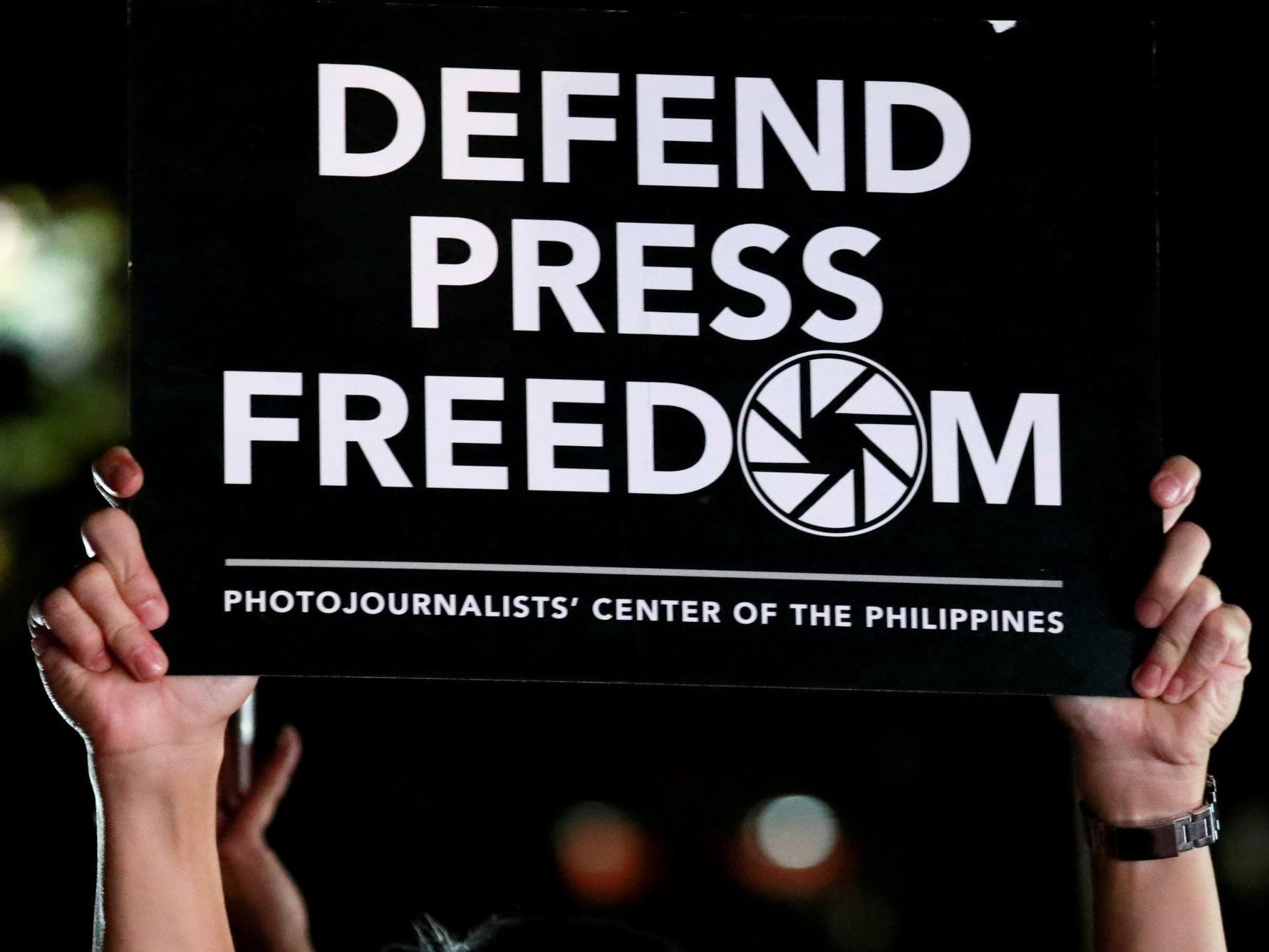
Freedom of expression has reached a ten-year low around the world, according to new research urging governments to “take action to reverse this trend”.
Increases in threats made towards journalists and in “digital authoritarianism”, wherein governments increase online surveillance and clamp down on content, have contributed to the downward trend, UK-based charity Article 19 has said.
The group’s Global Expression Report for 2018/19 shows that improvements in freedom of expression made between 2008 and 2013 were “eroded” over the subsequent five years.
It said 66 countries, with a combined population of more than 5.5bn people, saw their freedom of expression environment drop in the past decade.
Media freedom and digital freedom of expression are both lower than they were a decade ago in every region of the world except the Middle East and North Africa, it added.
Thomas Hughes, executive director of Article 19, said: “Some of these threats are not new: governments are still using state violence and judicial harassment to close down protests.
“Journalists, communicators and human rights defenders are still being imprisoned, attacked and killed with impunity.
“But we are also seeing a rise in digital authoritarianism where governments are using digital technology to surveil their citizens, restrict content and shut down communications.”
“Governments need to take action to reverse this trend and uphold their citizens’ right to freedom of expression.”
Analysis by Article 19 showed that the number of alerts submitted to the Council of Europe’s platform “to promote the protection of journalism and safety of journalists” has almost doubled each year since its launch in 2015.
Turkey, Russia, Ukraine, Azerbaijan and France were the subjects of the most alerts during that period, while more than half (57 per cent) of all alerts cite a member state as the source of the threat.
Last year “saw a clear trend towards verbal abuse and public stigmatisation of the media and individual journalists in many member states, including by elected officials and especially in the run-up to elections”, the report said.
According to figures from UNESCO, 99 journalists were killed in 2018, a rise of 21 on the year before. Of these, seven were women and nine were freelancers.
Article 19 said impunity for such crimes remains “persistent” and “astonishingly high” at more than 95 per cent, with Somalia the worst offender.
The number of journalists behind bars rose for the third year running, at more than 250 journalists at the end of 2018, of whom 13 per cent were women and 40 per cent were freelance.
Turkey, China and Egypt were responsible for more than half of the imprisoned journalists for the third year in a row.
Article 19 said 11 per cent of those detained were held on “false news charges”, which it said was a “huge rise”.
“Exacerbating this difficult situation is withdrawal of accreditation from journalists, and harsh attacks which aim to stigmatise and discredit the media, leaving them vulnerable to attacks from both state and non-state actors,” the report said.
It added: “Women journalists face specific challenges, including gender-specific attacks, online harassment, inequality within the media and general discrimination against women in society which creates barriers to working and succeeding as a journalist.”
Article 19’s report said the drop in digital freedom of expression was “largely due to a rise in digital authoritarianism with governments increasingly undermining freedom of expression online through: internet shutdowns, content restrictions, weakening encryption, increased surveillance, banning secure messaging apps, and data localisation”.
It said freedom of expression was particularly being crushed because of a continued rise in “populist strongmen” in the Americas, South East Asia, Sub-Saharan Africa and Eastern Europe who want to suppress protest and scrutiny of their regimes.
“Attacks on expression are holistic, with limits on traditional media and public demonstration underpinned by increasingly sophisticated digital authoritarianism, taking control of internet infrastructure and the content shared on it.”
Picture: Reuters/Eloisa Lopez
Email pged@pressgazette.co.uk to point out mistakes, provide story tips or send in a letter for publication on our "Letters Page" blog
